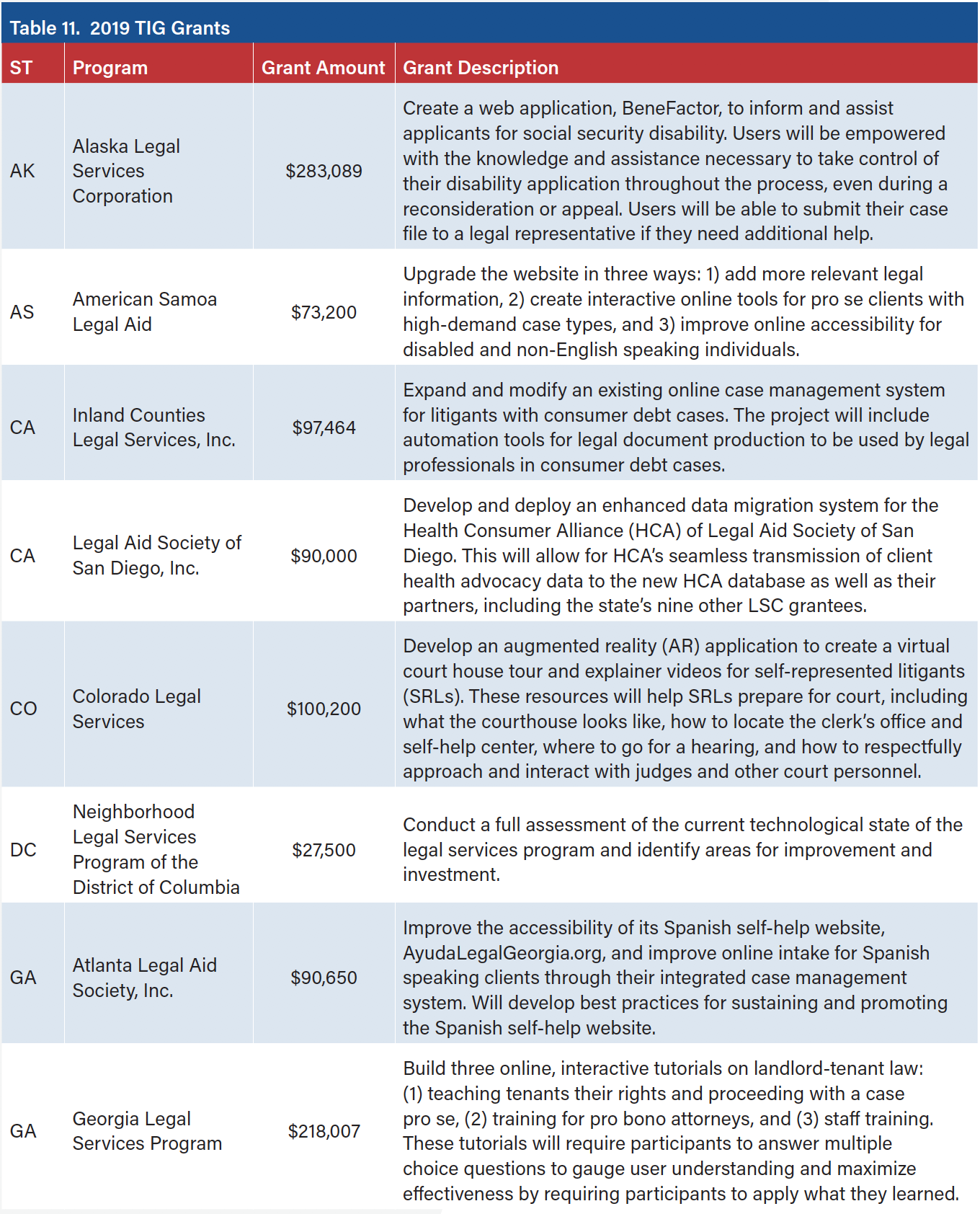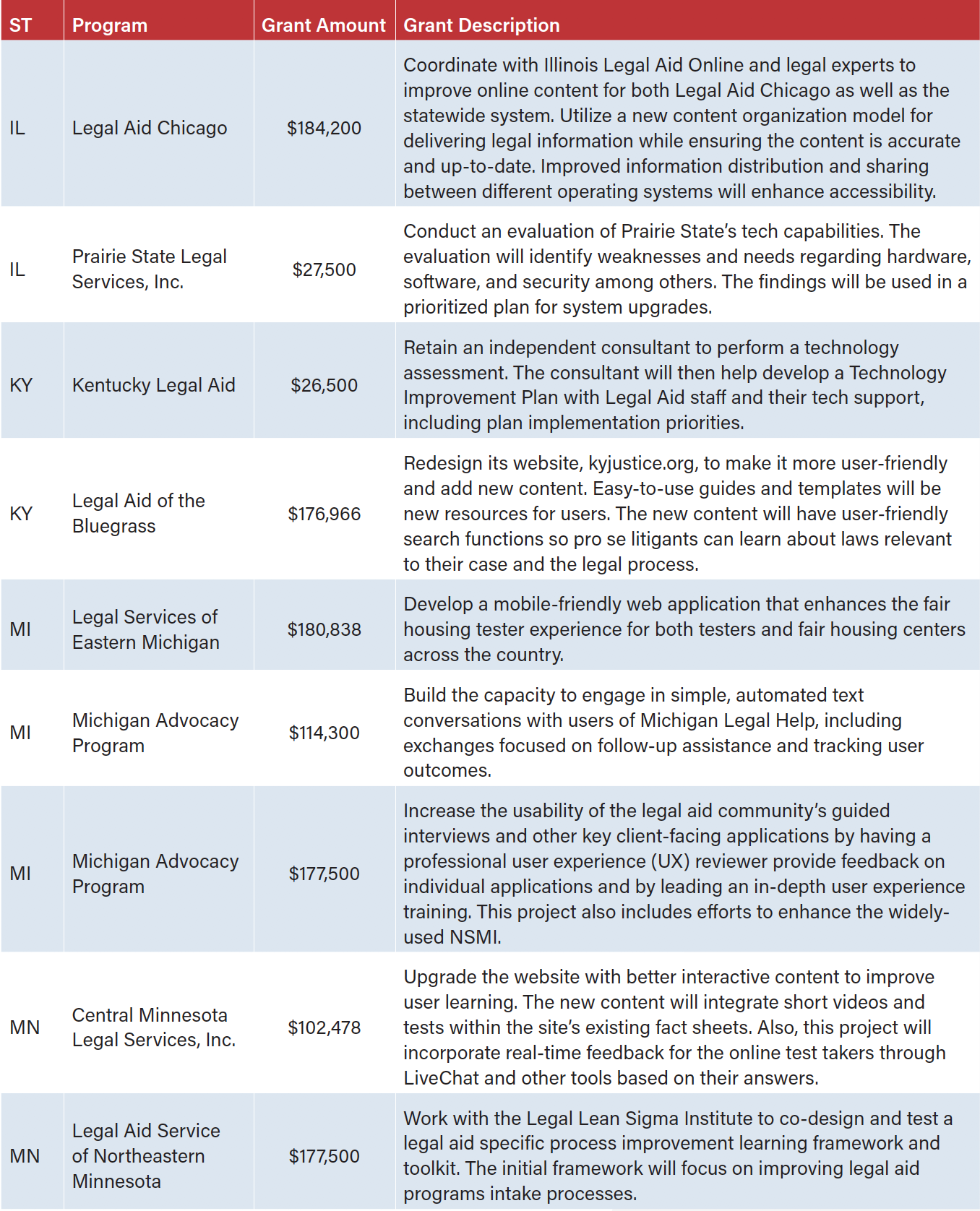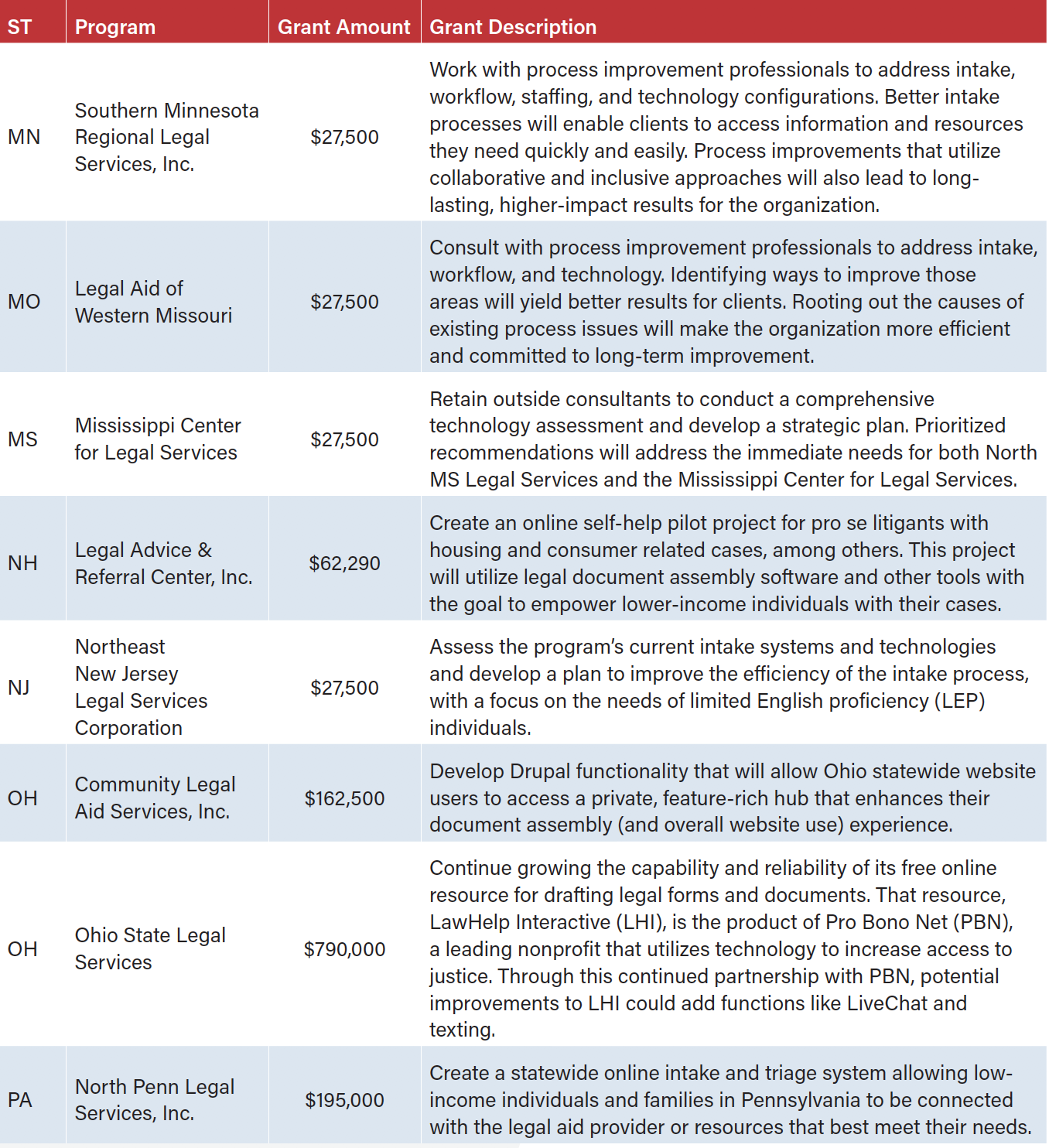Technology Initiative Grants
Loan Repayment Assistance Program
Legal Services by Jurisdiction
LSC FUNDING SUPPORTS ACCESS TO JUSTICE THROUGH TECHNOLOGY
LSC requests $5 million for the Technology Initiative Grants (TIG) program for FY 2021—the same amount LSC has requested for the past eight years. Currently the TIG program is funded at $4 million.
Since its inception in 2000, TIG has funded more than 755 projects totaling nearly $69 million. The TIG program is a success story. It has played a significant role in promoting technology to address the civil legal needs of low-income people. Technology helps stretch limited resources and allows grantees to automate functions and provide easy-to-use legal information for self-represented litigants. With these grants, LSC grantees have built a foundation for better service delivery that includes statewide websites; instructional videos; enhanced capacity for intake; improved case management systems; and automated forms to support clients, staff, and pro bono efforts.
In FY 2019, LSC awarded technology grants to 30 legal services organizations totaling $4,230,718. Grant recipients have used this funding to create new ways to serve clients, strengthen program capacity, and support the work of pro bono attorneys. Among the 30 initiatives funded in 2019 are several projects that improve online self-help resources. Others will increase access to justice for vulnerable populations. For example, American Samoa Legal Aid, the Atlanta Legal Aid Society, and Northeast New Jersey Legal Services Corporation will use TIG funding to ensure their services are accessible to individuals with limited English proficiency, while Northwest Justice Project in Washington State will use technology to better reach deaf and hard-of-hearing clients.
Examples of projects funded in 2019 include:
Using Business Process Analysis to Improve Client Intake
A core function of legal aid programs is client intake. Improved intake will enable clients to connect more quickly and easily to the services and information they need to address their legal problem. LSC’s Report of The Summit on the Use of Technology to Expand Access to Justice identified Business Process Analysis (BPA)—the rigorous review of how a task or function is currently performed, along with how it can be streamlined and enhanced—as one of five initiatives that offered the most potential for improving access.
TIG awarded four grants to programs in three states—Minnesota, New Jersey, and Missouri—to work with outside experts to identify and address areas of improvement in their intake workflow, staffing, and use of technology. The process includes an assessment and mapping of each program’s current approach to intake and development of a more efficient process, with a focus on the needs of limited English proficiency individuals. The project teams will also develop metrics and apply them to determine any measurable improvement in the grantee’s intake process.
Through these grants, the project teams hope to create the foundation for a nationally available learning framework for process improvement in legal services and showcase improved intake systems for replication in other legal aid programs.
Online Interactive Tutorials on Landlord-Tenant Law
Georgia Legal Services Program (GLSP) received funding for an eLearning project to build three interactive, online training modules focused on defending eviction cases and other aspects of landlord tenant law. The three modules will: (1) teach tenants their rights and how to proceed with a case on their own when they do not have access to an attorney; (2) train pro bono attorneys to take more cases in this area; and (3) help GLSP staff become better advocates on eviction and housing issues. These tutorials will require participants to answer multiple-choice questions to gauge user understanding and maximize effectiveness by requiring participants to apply what they learned.
Virtual Courthouse Tour for Self-Represented Litigants
Colorado Legal Services will use an augmented reality application to create a virtual courthouse tour and explainer videos for self-represented litigants (SRLs). These resources will help SRLs prepare for court, including an understanding of what the inside of the courthouse looks like, how to locate the clerk’s office and self-help center, where to go for a hearing, and how to interact respectfully with judges and other court personnel. This project will help self-represented litigants be better prepared and more comfortable and confident when interacting with the court.






